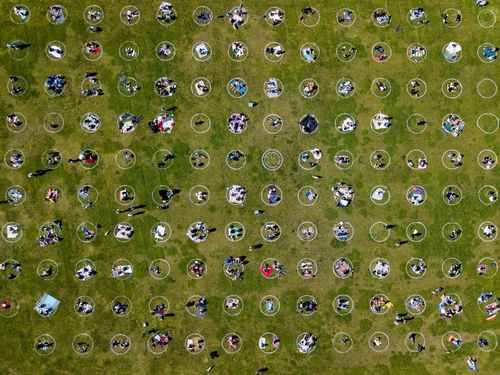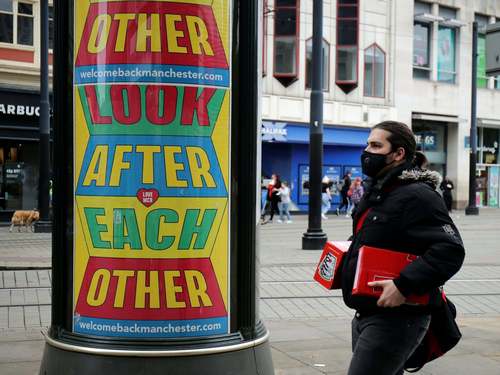A go back to pre-pandemic normal life appears difficult for the foreseeable future. In the absence of control measures, it would certainly result in the quick spread of coronavirus as well as lots of fatalities.
About 70 per cent of a populace needs to be immune to establish herd resistance, a degree of immunity in the populace that quits coronavirus transmission. For the UK, with its 66 million inhabitants, this would certainly call for the infection of regarding 46 million people. At an approximated death rate of 0.5 per cent, this would cause virtually a quarter of a million fatalities.
This best-case scenario does not consider the daily introduction of newborn babies, not yet unsusceptible to the novel coronavirus, neither that it appears not likely that big proportions of the population will develop long-term resistance in action to a mild situation of Covid-19. If resistance is short-term, all-natural herd immunity will never be gotten to and the coronavirus will remain to flow. The infection might likewise mutate and new versions might reinfect people unsusceptible to the initial infection variant.
Only a tiny portion of the population has touched with the coronavirus, so we continue to be as susceptible to more waves of the disease as we were before the pandemic. Further tops are inevitable as long as the virus is still spreading, making a return to normal unreachable. However maybe the procedures we have implemented to control the virus are not so poor. We might desire to take into consideration maintaining them.
Social distancing and comprehensive hygiene are the primary steps that stop the coronavirus from spreading. Social distancing stops infection transmission with the air using exhaled beads and is a really effective step, although it does have unfavorable results on some individuals’s wellness and also mental wellness.

Hygiene actions, such as hand washing and disinfection, avoid infection transmission through polluted surfaces. Both social distancing and enhanced health avoid the spread of Covid-19 and also various other contagious illness.
There will certainly also be fewer cases of flu as well as the usual cold if we can preserve these steps. The spread of germs that create nausea, diarrhea as well as throwing up will likewise be reduced. Extra significantly, these actions could avoid the next pandemic, which could be a lot more lethal than Covid-19 or seasonal influenza.
Various flu virus stress distribute in birds, which have actually eliminated 30 per cent to 60 percent of infected humans which are just a few anomalies far from coming to be easily transmissible in between humans. As well as Mers, which is also brought on by a coronavirus and is sent from camels to people, kills around a 3rd of those infected.
The circumstance will be much worse than the current pandemic if these a lot more harmful infections acquire the ability to spread out as effectively from human to human as the unique coronavirus. Lifestyle adaptation currently will certainly assist to safeguard us from future pandemics.
Offered the severe threat of Covid-19, people may completely change their behaviour, if circumstances allow them to. Practices that made use of to be socially acceptable might no longer be endured.
Considering that we can be contaminated when we are close to others and when we touch polluted surface areas, individuals might alter their mindsets in the direction of all elements of social call related to the spread of illness.
Based on their experience of the Covid-19 pandemic, people might avoid activities and locations or need as well as accept more detailed hygiene techniques
Functioning life may alter and also entail even more functioning from home, decreasing individual call where feasible (a lot more online conferences), eliminating hot-desking and also reducing common tools.
People might be less prepared to join groups as well as crowded locations as well as develop a new understanding of a secure range. Public transport, lifts as well as venues, such as sports stadiums, convention centres, amusement park and also fairgrounds, may need to be adapted to this. And also travelling may be reduced as well as extra thoroughly planned.
There might likewise be less body contact, including trembling hands and hugging, and boosted readiness to use face coverings and approve other safety actions in a broader variety of scenarios.
More focus might be permanently positioned on individual hygiene procedures, such as hand cleaning, integrated with a higher awareness of the infection risk related to items that are touched by several, such as door deals with, going shopping baskets, hand rails and filling nozzles, along with shared equipment from health clubs and sports halls, public toilets and rental solutions.
Based on their experience of the Covid-19 pandemic, people may avoid activities as well as locations or demand and also accept even more thorough health techniques that would have been formerly unacceptable.
Boosted awareness of infection threats and health might cause a culture that is far better prepared to manage the threats posed by infectious conditions. Similar modifications have happened in the past. For instance, the realisation that cholera is transferred in contaminated water resulted in a long-term change of perspective in the direction of cleanliness.
If these changes in behaviours are to be attained and also sustained, public policies require to recognise and deal with the perilous living and also functioning conditions that some poorer individuals experience and also that will certainly stand in the method of everyone adopting this new normal.
About 70 per cent of a populace requires to be immune to establish herd immunity, a level of immunity in the population that stops coronavirus transmission. If resistance is short-lived, natural herd resistance will never ever be reached and also the coronavirus will continue to distribute. Just a tiny portion of the population has been in call with the coronavirus, so we remain as vulnerable to additional waves of the disease as we were prior to the pandemic. Perhaps the measures we have actually placed in place to control the virus are not so bad. These steps might prevent the following pandemic, which could be much more dangerous than Covid-19 or seasonal influenza.1



